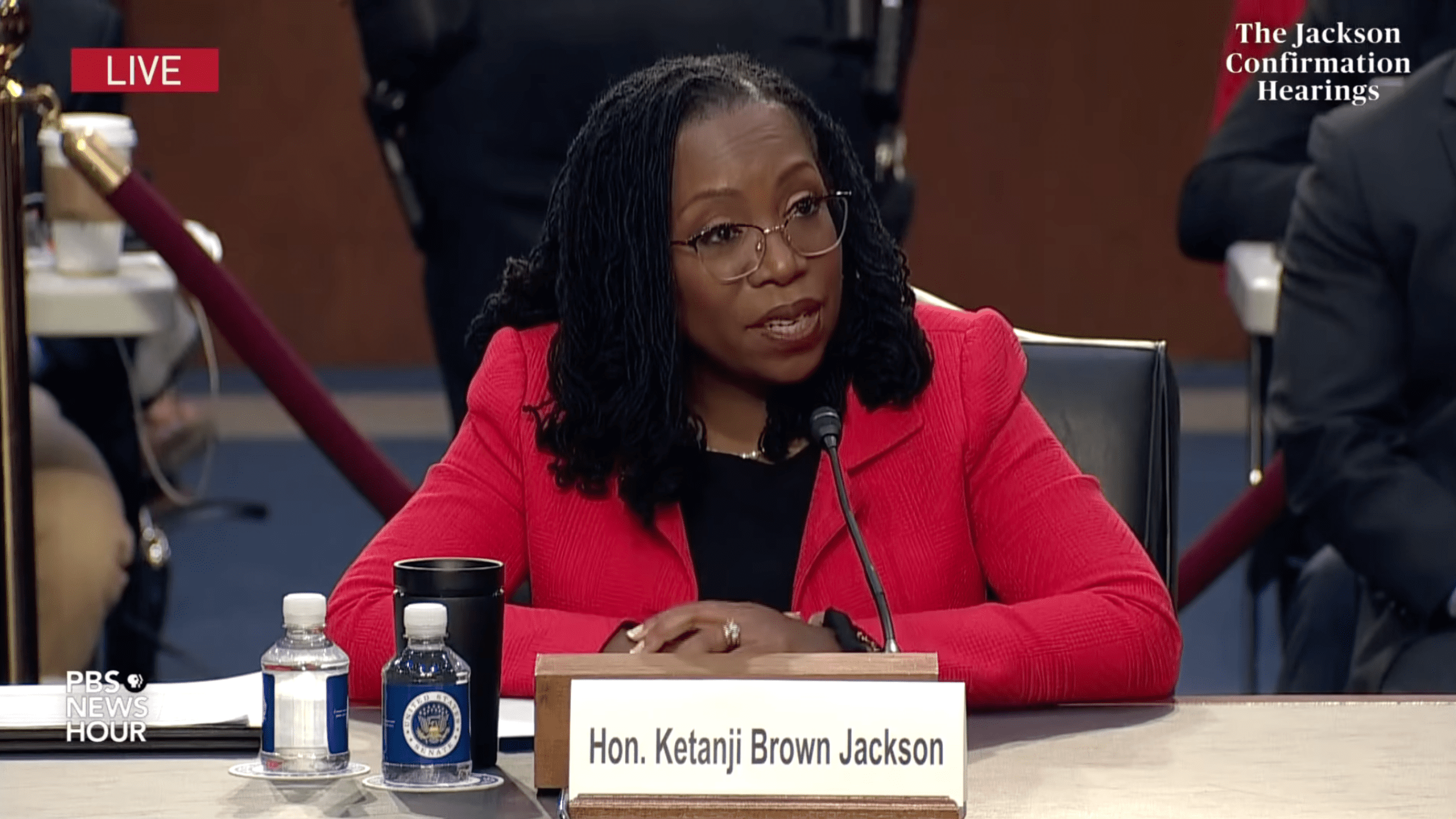Tuesday was the first full day of questioning in Supreme Court nominee Ketanji Brown Jackson’s confirmation hearings, and boy, did it get dumb on so many levels. Let’s just spin the wheel and see what terrible Republican senator we land on, shall we?
How about the senior senator from Texas, John Cornyn? Often overshadowed by the churlish nature and terrible facial hair of the state’s junior senator, Cornyn nevertheless spent his allotted 30 minutes of questioning thoroughly beclowning himself. “I’ve never figured out why lawyers speak Latin rather than in English,” he began, as if he hadn’t started his career as a Texas district court judge, a Texas state Supreme Court justice, and the Attorney General of Texas. Cornyn also congratulated Jackson on being the first Black woman Supreme Court nominee, but then made it real weird: “When Clarence Thomas, the second African-American who was nominated to and confirmed by the Supreme Court was nominated to the court, did you celebrate that as a historic event?”
There’s so much to unpack here. There’s the obvious Justice Thurgood Marshall erasure; Jackson was 21 when Marshall retired from the Court, so she was presumably familiar with the first Black Justice. There’s the strange insistence that she must have celebrated Thomas’s nomination, which is more than a little awkward given what a vocal proponent of Jackson’s nomination Anita Hill, whose sexual harassment allegations against Thomas Republicans scrupulously ignored in order to confirm him, has been. Finally, there’s the specter of an old white Southern guy functionally asking the Black person in front of him if they’re best friends with the other Black person he can think of.
Clip via YouTube
But Cornyn was just getting warmed up. His questions about whether the Supreme Court was correct to overturn two of its most shameful decisions, the slavery-era Dred Scott v. Sandford and Plessy v. Ferguson, provided ominous hints about the direction Republicans hope this 6-3 conservative supermajority will take the law in the years to come.
Plessy and Dred Scott are the cases conservatives love to cite when they want to argue that anything involving substantive due process rights—fundamental rights that courts protect even though they don’t appear explicitly in the Constitution’s text—should be thrown out. This school of thought’s pseudointellectual godfather is none other than Justice Antonin Scalia, who in a separate opinion in Planned Parenthood v. Casey waxed rhapsodic about how enslaving people is the same as abortion, and that Dred Scott was “the original precedent” for Roe.
Cornyn mixed things up a bit, however, by trotting out Dred Scott to complain about a different due process right he hates: same-sex marriage, as outlined in 2015’s Obergefell v. Hodges. Such a refreshing change of pace! After asking Jackson to “nerd out” with him for a bit, Cornyn brought up the number of states that, before Obergefell, voted on the basic human rights of same-sex couples and determined with depressing regularity that no such rights existed. The Court’s decision in Obergefell, he argued, “creates a circumstance for those who may hold traditional beliefs like something as important as marriage that they will be vilified as unwilling to assent to this new orthodoxy.” He then read a portion of Justice Samuel Alito’s dissent in Obergefell, who worried/whined that if “those who cling to the old beliefs…repeat those views in public, they will risk being labeled as bigots and treated as such by governments, employees, and schools.”
Clip via YouTube
No matter how hard conservatives may wish this to be true, there’s no constitutional right to be free from being vilified for being a bigot. (Until the Roberts Court votes 6-3 to limit the constitutional right to free speech to Federalist Society members, bigots are stuck with the fact that others can label them as such.) But Cornyn’s questions echo a popular subject of discussion for the modern conservative legal movement, and the implication is clear: If the Court indeed overrules Roe in Dobbs v. Jackson Women’s Health Organization later this year, he reasons, why not throw out Obergefell next?
Jackson handled this with considerable aplomb, which is why she is the current Supreme Court nominee, and the rest of us are not. “That is the nature of a right—that there are limitations on regulation, even if people are regulating pursuant to their sincerely held religious beliefs,” she said. She also explained, as if to a particularly recalcitrant small child, that the substantive due process concept that so irks conservatives is also what confers “rights related to intimacy and autonomy”—not only abortion and contraception access, she noted, but also the right to marry, to travel, and to raise one’s children. (At this, Cornyn, started talking about slavery again.)
One might think that Jackson’s invocation of these bedrock fundamental human rights would make Republicans think twice about their critiques of substantive due process. In reality, some Republicans have few qualms about getting rid of those rights, too. Last weekend, Tennessee’s Marsha Blackburn called Griswold v. Connecticut, which protects the right to contraceptive access for married couples, a “constitutionally unsound” decision. In an interview on Tuesday, Republican Senator Mike Braun of Indiana suggested that Loving v. Virginia, which protects the right to interracial marriage, might also be bad law, and states should be able to ban interracial marriage if they so choose.
“If you’re not wanting the Supreme Court to weigh in on issues like [abortion], you’re not going to be able to have your cake and eat it, too,” he said. “We’re better off having states manifest their points of view, rather than homogenizing it across the country as Roe v. Wade did.”
Clip via YouTube
(Later, Braun semi-walked back this Jim Crow apologia by saying he “misunderstood a line of questioning that ended up being about interracial marriage.” Said line of questioning appears to have explicitly mentioned interracial marriage at least twice, but either understanding is not Braun’s strong suit, or he really isn’t all that sorry.)
Many Republicans on the Senate Judiciary Committee have cloaked their questions to Jackson as objections to her record. But the performances of Cornyn, Blackburn, and Braun demonstrate their bare eagerness to return to an era of allowing people to vote on the legal treatment of other humans. As I wrote last fall, conservatives have a six-justice majority willing to brutally and comprehensively roll back the civil rights of groups they don’t like. Why would they beat around the bush about what they want any longer?


